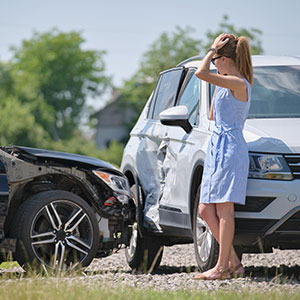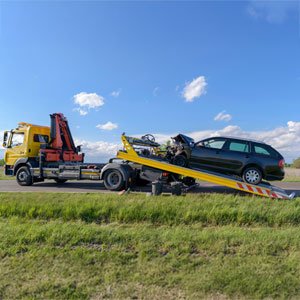Remittitur And How To Correct An Error By The Jury
Car AccidentsIn the case of Nieves v. State Farm Mutual Automobile Insurance Company, Case Number 5D17-893 (Fla. 5th DCA May 25, 2018), State Farm challenged all of the damages awarded to the plaintiff with a “remittitur” and ends up getting a new trial just on the narrow issue of the future medical expenses.
State Farm Lost The Trial But Still Gets A Partial Do-Over
Nieves was injured in a car accident with an uninsured motorist. Thereafter, she sued State Farm as her uninsured motorist carrier. The jury found that the uninsured motorist was 100% responsible for the accident. In addition, the jury made the following allocations regarding damages:
- $26,996.04 for past medical expenses
- $377,944.56 for future medical expenses
- $27,375.00 for pain and suffering in the past
- $383,250.00 for pain and suffering in the future
- $13,140.00 for loss of marital consortium in the past
- $183.960.00 for loss of marital consortium in the future
After the trial, State Farm challenged all of the damages (by moving for a “remittitur“). The trial judge denied State Farm’s motion for remittitur with the exception of “future medical damages” for which the court said that “not all of the future medical expenses that [the] Plaintiff was awarded were testified to with sufficient certainty” (Note-It remains to be seen how that determination was made and at what point is the testimony “sufficient”).
After that ruling, State Farm refused to accept the remittur and the trial judge ordered a new trial pursuant to section 768.043, Fla. Stat. for ALL DAMAGES (not just a retrial on future medical expenses).
Florida Remittitur For Car Accidents Is Limited To Retrial Only On Issue In Question
Where the trial judge went wrong was ordering a new trial on all of the plaintiff’s damages. To analyze this situation, we need to go back to section 768.043 to look at why it is there.
A remittitur (or additur) is supposed to fill the gap where a jury’s verdict is clearly wrong in some way (in other words, something was “clearly excessive” or “clearly inadequate”). If the trial judge agrees that the jury “got it wrong,” then party adversely affected (in this case, it was State Farm because the verdict meant that they had to pay) gets the option to agree to a “fix.” If the adversely affected party does not agree, then the trial judge has to order a new trial.
While the statute does not expressly say that the new trial should be limited to the issue that the “jury got wrong” by the judge, it stands to reason that a new trial on all of the damages is unnecessary when only part of it is in dispute.
Perhaps State Farm may want to settle before picking a new jury and a retrial on future medical expenses only-that is their prerogative. Regardless, the Fifth DCA pointed out two prior cases in which the error from the jury:
- ITT Hartford Ins. of the Se. v. Owens, 816 So. 2d 572 (Fla. 2002)
- Astigarraga v. Green, 712 So. 2d 1183 (Fla. 2d DCA 1998)
Therefore, if you ever face a remittitur or addittur on your case (because the jury clearly made some kind of mistake), there are at least three Florida cases that will limit the new trial only to the questions on the verdict form for which the judge finds that the jury made a mistake. A post-trial settlement might not be bad either and these cases might be enough to cause an adversary to do just that.
Get Help With Your Car Accident Case
If you need an attorney for your Florida car accident case, you should contact a Lakeland, FL car accident attorney for a free case review to discuss what your legal options are. Call us today to schedule your free case review.


